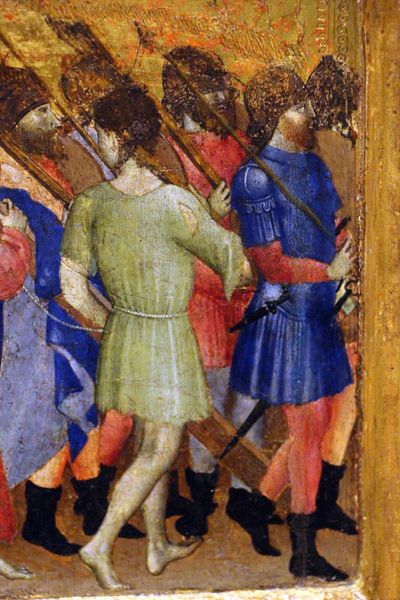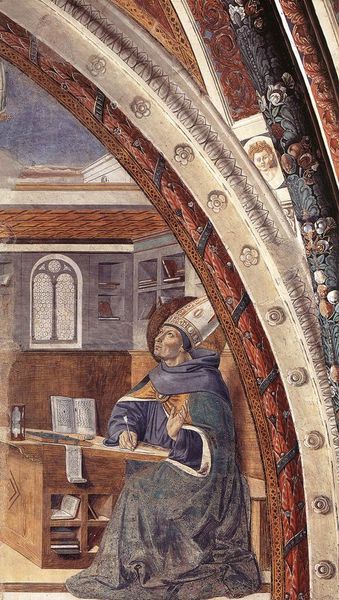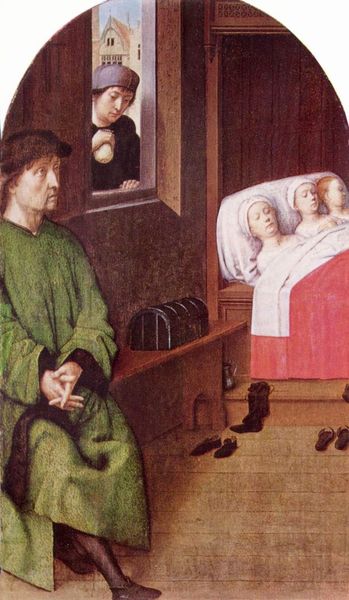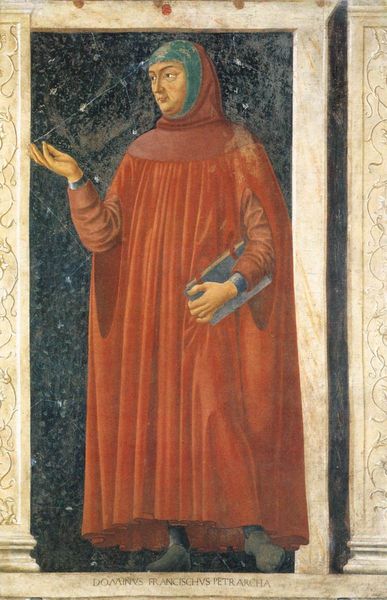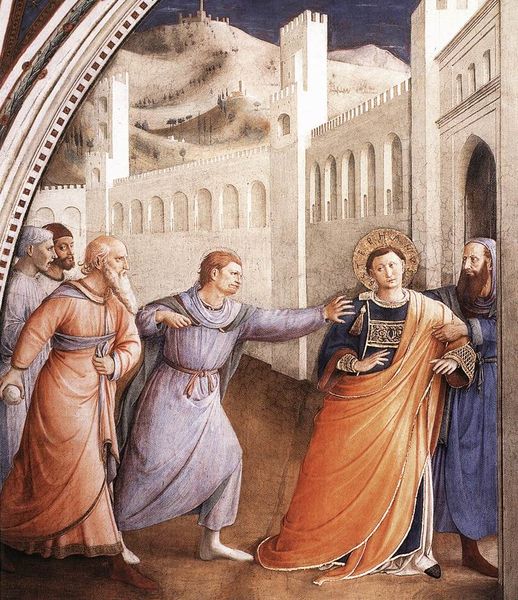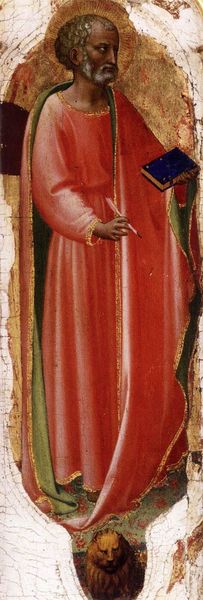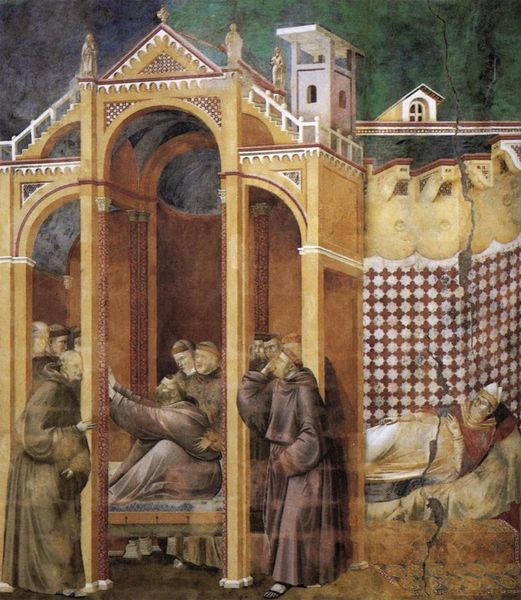
St. Augustine Departing for Milan (detail) 1465
0:00
0:00
benozzogozzoli
Sant'Agostino Church, San Gimignano, Italy
painting, oil-paint
#
portrait
#
painting
#
oil-paint
#
figuration
#
oil painting
#
portrait reference
#
christianity
#
history-painting
#
italian-renaissance
#
portrait art
#
fine art portrait
#
christ
Copyright: Public domain
Benozzo Gozzoli painted this section of "St. Augustine Departing for Milan" using fresco, a technique of painting directly onto wet plaster, sometime in the second half of the 15th century. The nature of fresco demanded speed, and the confidence to commit pigment to surface without second chances. The artist had to work in sections, completing each before the plaster dried. If you look closely, you can see the lines that separate each day’s work. These divisions also give insight into Gozzoli’s process. Notice how the faces of his figures are rendered with painstaking detail, in contrast with the more broadly painted swathes of color of their robes. There's also the socio-economic dimension to consider: these materials, from the pigments to the plaster itself, were relatively costly. The making of the plaster was skilled work as well. So, this image gives you a glimpse into the confluence of labor, materials, and artistic vision that defines Renaissance art. This wasn’t just fine art: it was high craft as well.
Comments
No comments
Be the first to comment and join the conversation on the ultimate creative platform.

